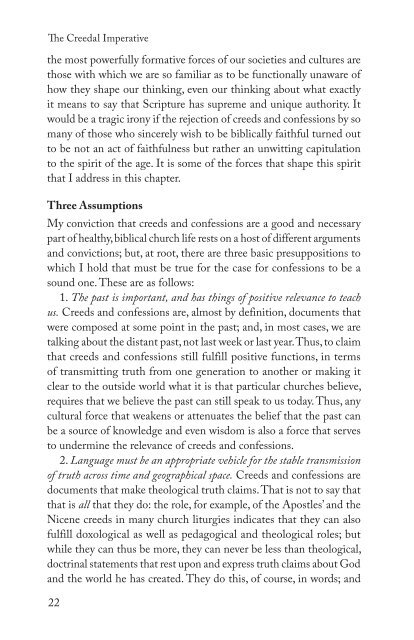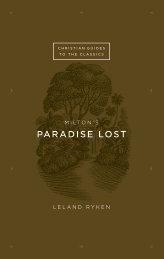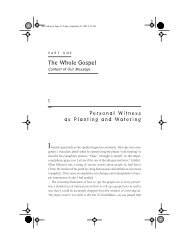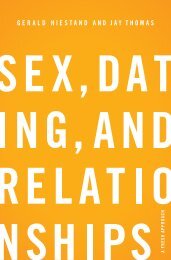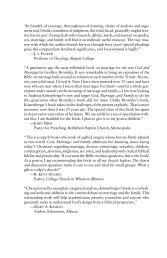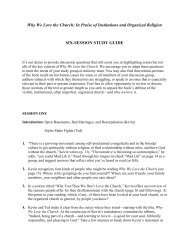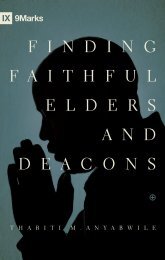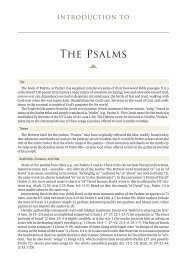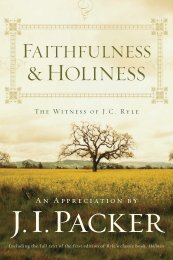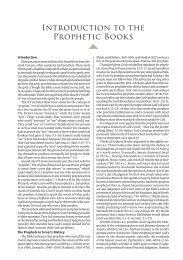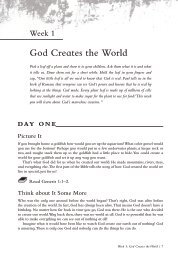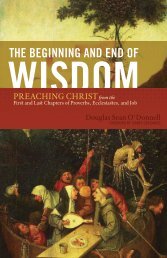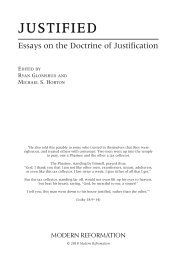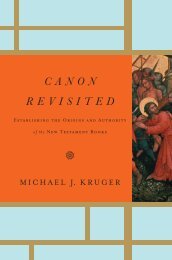The reedal - Monergism Books
The reedal - Monergism Books
The reedal - Monergism Books
Create successful ePaper yourself
Turn your PDF publications into a flip-book with our unique Google optimized e-Paper software.
<strong>The</strong> C<strong>reedal</strong> Imperativethe most powerfully formative forces of our societies and cultures arethose with which we are so familiar as to be functionally unaware ofhow they shape our thinking, even our thinking about what exactlyit means to say that Scripture has supreme and unique authority. Itwould be a tragic irony if the rejection of creeds and confessions by somany of those who sincerely wish to be biblically faithful turned outto be not an act of faithfulness but rather an unwitting capitulationto the spirit of the age. It is some of the forces that shape this spiritthat I address in this chapter.Three AssumptionsMy conviction that creeds and confessions are a good and necessarypart of healthy, biblical church life rests on a host of different argumentsand convictions; but, at root, there are three basic presuppositions towhich I hold that must be true for the case for confessions to be asound one. <strong>The</strong>se are as follows:1. <strong>The</strong> past is important, and has things of positive relevance to teachus. Creeds and confessions are, almost by definition, documents thatwere composed at some point in the past; and, in most cases, we aretalking about the distant past, not last week or last year. Thus, to claimthat creeds and confessions still fulfill positive functions, in termsof transmitting truth from one generation to another or making itclear to the outside world what it is that particular churches believe,requires that we believe the past can still speak to us today. Thus, anycultural force that weakens or attenuates the belief that the past canbe a source of knowledge and even wisdom is also a force that servesto undermine the relevance of creeds and confessions.2. Language must be an appropriate vehicle for the stable transmissionof truth across time and geographical space. Creeds and confessions aredocuments that make theological truth claims. That is not to say thatthat is all that they do: the role, for example, of the Apostles’ and theNicene creeds in many church liturgies indicates that they can alsofulfill doxological as well as pedagogical and theological roles; butwhile they can thus be more, they can never be less than theological,doctrinal statements that rest upon and express truth claims about Godand the world he has created. <strong>The</strong>y do this, of course, in words; and22


